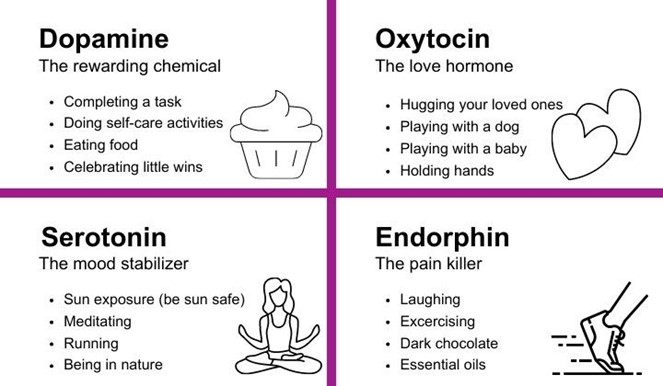The practical nurse (PN) is caring for a client whose urine drug screen is positive for cocaine. Which behavior is most likely seen in this client?
Elevated energy level
Powerful craving for more
High self-esteem
Euphoria
The Correct Answer is A
- Cocaine is a powerfully addictive stimulant drug that increases the levels of dopamine in the brain, which is a chemical messenger related to movement, pleasure, and motivation.
- Cocaine's effects appear almost immediately and last for a few minutes to an hour, depending on the method of use. Some of the short-term effects of cocaine include extreme happiness and energy, mental alertness, hypersensitivity to sight, sound, and touch, and irritability.
- An elevated energy level is one of the most common and noticeable effects of cocaine use, as cocaine stimulates the central nervous system and makes the user feel more alert, active, and confident¹². This effect may also lead to increased physical activity, talkativeness, or aggression.
Therefore, option A is the correct answer, while options B, C, and D are incorrect.
Option B is incorrect because a powerful craving for more cocaine is not a behavior that can be observed by others, but rather an internal feeling that the user may experience due to the addictive nature of the drug.
Option C is incorrect because high self-esteem is not a typical effect of cocaine use, as cocaine may cause paranoia or anxiety in some users.
Option D is incorrect because euphoria is not a behavior that can be observed by others, but rather an emotional state that the user may feel due to the increased dopamine levels in the brain

Nursing Test Bank
Naxlex Comprehensive Predictor Exams
Related Questions
Correct Answer is B
Explanation
A. Incorrect. The nurse should check the functioning of oxygen equipment daily, not weekly, to ensure safety and proper delivery of oxygen.
B. Correct. The nurse should instruct the client to wear clothing made with cotton fabrics while oxygen is in use, as synthetic fabrics can generate static electricity and cause sparks that could ignite the oxygen.
C. Incorrect. The nurse should instruct the client to avoid petroleum-based lubricants, such as Vaseline, as they are flammable and could cause burns if exposed to oxygen. The nurse should recommend water-soluble lubricants, such as K-Y jelly, instead.
D. Incorrect. The nurse should instruct the client to store full oxygen tanks upright, not on their side, to prevent them from rolling and damaging the valve or regulator.
Correct Answer is D
Explanation
A is incorrect because assessing the apical pulse while the newborn is crying can result in an inaccurate measurement due to increased heart rate and respiratory rate.
B is incorrect because palpating the radial pulse for 30 seconds is not appropriate for a newborn as it can be difficult to locate and count accurately.
C is incorrect because listening to the apical pulse while palpating the radial pulse is not necessary for a newborn and can be confusing and time-consuming.
D is correct because auscultating the apical pulse at least 1 min is the best way to assess a newborn's heart rate as it provides an accurate and reliable measurement.
Whether you are a student looking to ace your exams or a practicing nurse seeking to enhance your expertise , our nursing education contents will empower you with the confidence and competence to make a difference in the lives of patients and become a respected leader in the healthcare field.
Visit Naxlex, invest in your future and unlock endless possibilities with our unparalleled nursing education contents today
Report Wrong Answer on the Current Question
Do you disagree with the answer? If yes, what is your expected answer? Explain.
Kindly be descriptive with the issue you are facing.
